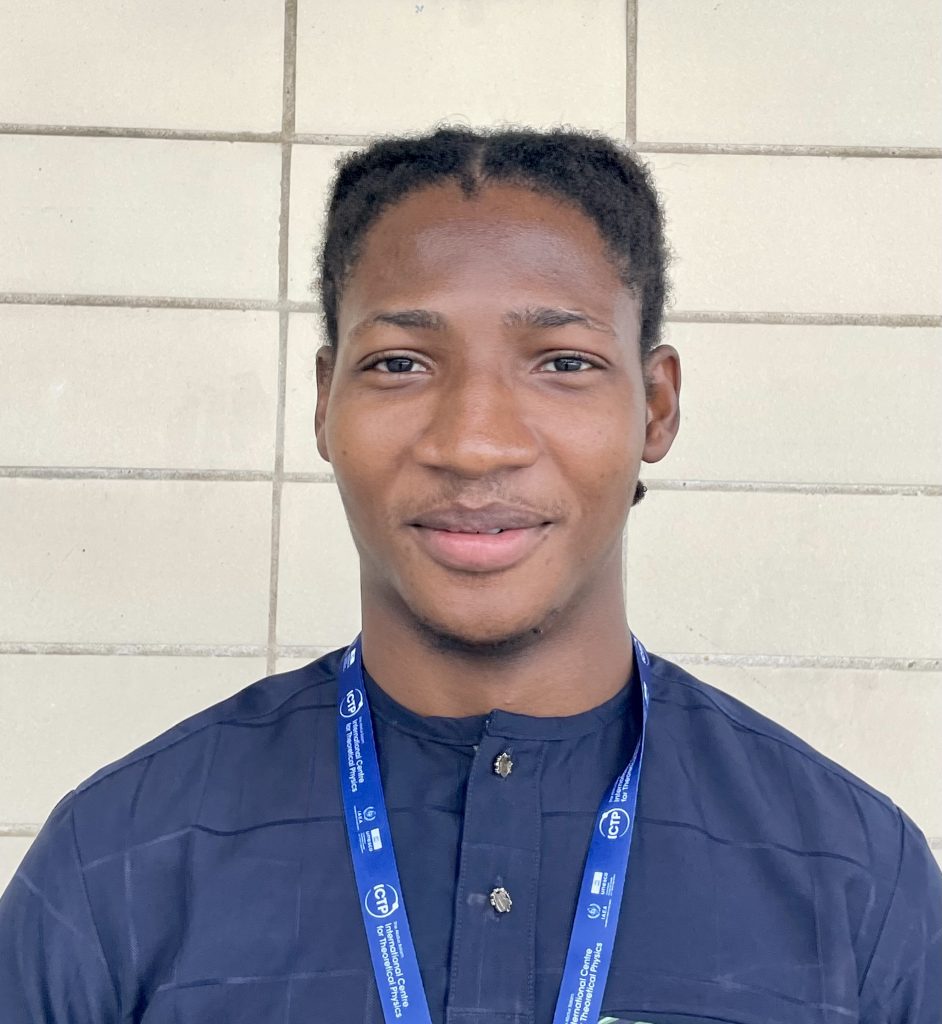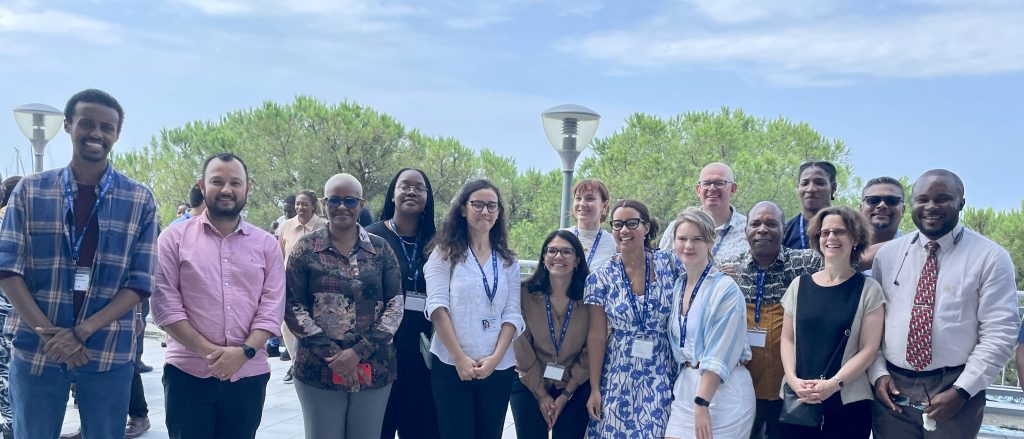This time we’re talk to Peace Peters who is a climate entrepreneur from Nigeria. His start-up company is called Lone Wolf Energy and aims to help reduce the pressure on the grid in Nigeria by moving large manufacturers to their own mini grids. Peace attended the EMP-G at the ICTP in Trieste last year.
Why are you targeting large manufacturers with your product?
At the moment, big factories that produce a lot take a lot of power from the grid which means there’s less available for everyone else. If they had their own power stations, there would be more power available for other domestic users in the rest of the state.
We have serious power issues in Nigeria; blackouts are constant and seen as normal. The generating companies keep this situation going because they make money by keeping the factories supplied with electricity and the rest of the people that need it for basic needs don’t get it and we have blackouts. We have a band system: A, B, C, D, E, and the band determines the number of hours you get per day. Band A gets up to 20 hours daily and the other bands get less time, as little as two hours daily.
So my company helps large users to design a system for their needs and we show them how much money they’ll be saving because they will be paying less money for power. In one analysis I did, I found that in about three years of operation with their own mini grid, they would pay for the cost of installation. And after that they would be making profits from power.
That’s one part of my work but I also want to expand my reach, learn more and do better because I want to help my country more. I have lots of ideas and I’ve been yearning for a community. When I got here, I had super high hopes, but I didn’t know it would be this good and that I would have access to all these resources and meet more people that could get stuff done. So, it’s lovely. I see a lot of potential in this.

Why is it important for you to be here?
I’m here for the training as it’s going to help me in helping Nigeria and then West Africa as I said. This is important because a lot of people in Africa still don’t see climate change as a subject to think about or discuss. I don’t feel that the work done by lots of NGOs in Nigeria is as effective as I would hope, but I understand that people have more important things to worry about – people need to eat.
What is the situation in Nigeria in terms of natural resources and where your energy is coming from right now?
We mostly have gas-fired plants. We have some renewable energy sources like a 10megawatt wind farm at Katsina, but it’s running off the grid. There’s also an actual farm that runs entirely on renewables. They have a massive solar plant there and enormous storage too. They have invested a lot in lithium, so they can store that power and use it when they need it. I’m planning a visit there very soon because I want to see if they could use their waste as biomass. We don’t use coal as much anymore, and we have hydro which makes up about 20% of our generation. The rest is gas.
So, you are a climate entrepreneur. Are you aware of other people like yourself?
I do not know any other people like me, because most of the other organizations are profit-orientated, they just want to install their systems and make money. They are not interested in promoting renewable energy or helping the climate. Their offices and vehicles are powered by diesel, for example.
Tell us more about what you do.
We design a system for a client and then we import the equipment because we don’t have the manufacturing infrastructure in Nigeria right now. We import what they need and then we incorporate it into a whole system that meets their energy needs. We’re relatively new and running for about two years. Before I finished university, I’d started working on this and by the time I graduated, we were already one year into operation.
And has the EMP-G been what you were expecting?
It has and it’s been even better. I was expecting training for the electricity transition, obviously, and that has been fascinating – learning how to put certain things in place to make the transition smoother and reduce emissions. This will give me the ability to sit with the team and make plans by calculating certain factors, collecting data and making our models more efficient.
But it’s also been better because of the community aspect that I talked about. One person doesn’t have to wait till he learns how to use the OSeMOSYS tool for example, we could just have people from each of these pathways come together to work as a team. They don’t even need to be together – it could be virtual. And the sweetest part is that everybody’s from different countries, so we have different insights to an issue. It’s really, really something.

And what’s the government’s position about the transition to clean energy?
The government’s view on transition has been really good because in 2011, we made the commitment to get to net zero by 2016. And since then, there have been lots of projects (including the 10 megawatts Katina plant) and international bodies have been coming in to suggest projects and fund some. They’ve been working on it, but I feel like the technical know-how and skill and passion and that ability to push for things is what we need more of.
This programme actually helps because it gives us the technical know-how and then the tools we need to actually sit down and get these things done. In government, you often need a dynamic individual to move things forward. That’s where we come in.
Do you get any support in terms of grants or free advice from a business hubs or similar organisation?
I don’t have any of that, but I hope things will get better over time. Having to do everything myself has actually created quite a lot of resilience in me. Because it’s a little bit more difficult, and you have to work double time, you become more efficient.
One of our CCG projects is the creation of a database of entrepreneurs in Africa, so that could become another network that you could join.
That would be useful. We’re not developing entrepreneurs so much at the moment. Most of the other companies I talked about bring in Chinese labour and this is costly and has a negative impact on jobs. It also means the expertise is not embedded here – it leaves with the foreign contractors.
In my experience, if you want to change this, it happens by including certain requirements in your procurement processes like employing a certain number of local people.
In the long run, it makes more sense for these national organizations to train local people because they’ll be saving a lot of money and addressing unemployment nationally. But they’re not doing this. I think it’s a policy issue.
That’s why CCG and partners train people in the country to do energy modelling. Because a lot of countries used to outsource energy modelling to consultants who did it once and got paid a lot of money but then went away again without leaving a legacy of knowledge.
There’s also something curious about people getting educated in Nigeria. Most of the time when they get their education, they use it as a chance to escape. They take that knowledge out of Nigeria, which is another problem. I’d like to say to them “you have the experience you have everything to improve your home country and that’s where it’s needed the most.”
I think we need these educated people to stay in Nigeria and use their knowledge and skills to tack the climate issues here, rather than taking a good salary elsewhere and ignoring the problem. I don’t want to ever reach that stage. I feel like, when I’m old and grey, if I look back and I’ve not actually done any of these things, I would feel like I’ve just wasted all that time.
Peace was talking to CCG’s Peter Allen
